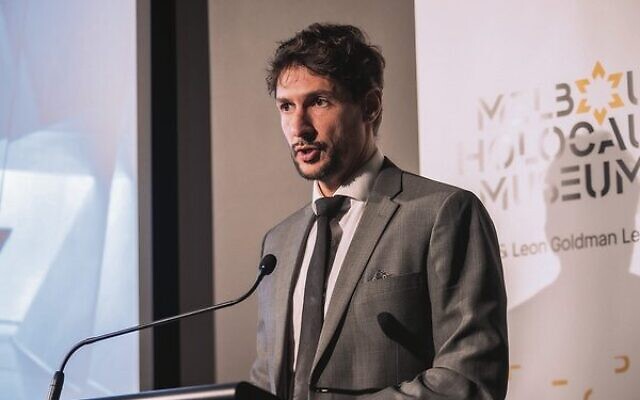Antisemitism ‘adopts new masks’
"[Antisemitism] evolves with time and context ... adopts new masks, learning how to hide and the different forms sometimes finding shelter behind freedom of expression".

AT a gathering to mark the 85th anniversary of Kristallnacht, Melbourne Holocaust Museum (MHM) co-president Sue Hampel condemned “the outpouring of antisemitism raging on our streets, on our television screens, on our social media and in our universities” since the October 7 Hamas atrocities in Israel.
“We are all concerned about the online upsurge in antisemitic messages, disinformation and hate speech which threatens the very cohesion that binds our democratic societies together,” she said.
At the November 9 event held at the MHM, Hampel introduced Karel Fracapane, leader of hate-speech issues at UNESCO’s Division for Peace and Sustainable Development, who gave the Betty & Shmuel Rosenkranz Oration, in memory of the late stalwarts of the former Jewish Holocaust Centre in Melbourne.
As a young man in Vienna on Kristallnacht, Shmuel had been taken to safety by his father in the woods outside the city, from where they saw the flames engulfing synagogues, and Jewish homes and businesses.
Fracapane, who was the first executive secretary of IHRA, described antisemitism as “a mirror of our democracies’ wellbeing, and a reflection of the regressive and dangerous tendencies that come to permeate our societies in times of uncertainty and angst”.
He said antisemitism “evolves with time and context … adopts new masks, learning how to hide and the different forms sometimes finding shelter behind freedom of expression”.
Fracapane referred to philosopher Vladimir Yankelevich, who in 1968 – after the Six-Day War – became one of the earliest identifiers of anti-Zionism as a lethally effective surrogate for antisemitism that cast Jews as perpetrators rather than as victims of evil.
He said UNESCO is currently working with education ministries in 12 EU countries, as well as with the University of Southern California and the American Federation of Teachers on programs to combat online antisemitism and hate speech. It is collaborating with the World Jewish Congress and the American Jewish Committee to develop training workshops for European and North American civil society organisations that want to strengthen their ability to combat antisemitism in the digital age.
Attendees were shown a video presentation about Kristallnacht, with archival testimony from survivors Marianne Roth and Hans Freund, giving their eyewitness accounts of the Nazi pogrom of November 9-10, 1938.
Jewish homes, hospitals and schools were ransacked, and rioters destroyed 267 synagogues throughout Germany, Austria and the Czech Sudetenland. More than 7000 Jewish businesses were damaged or destroyed, and 30,000 Jewish men were arrested and taken to concentration camps.
The commemoration finished with vocalist Karen Feldman singing Eli, Eli, and the audience taking part in the rousing Partisan’s Song and Hatikvah.

comments